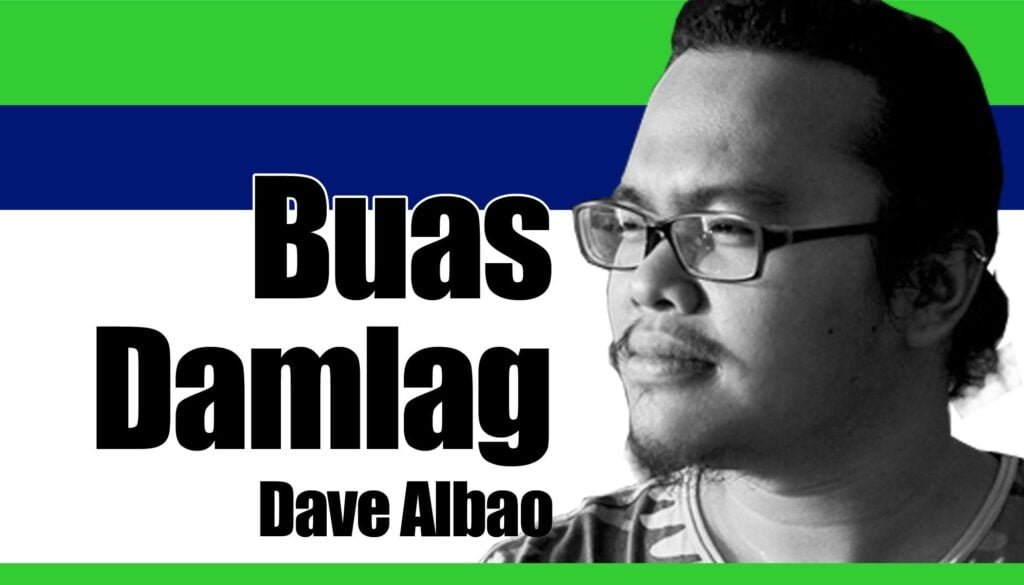
“Indi pag usiki” is an advice we probably have heard growing up, especially from generations before us who have experienced wartime, economic recession, and the scarcity of resources during periods of crisis.
It is the voice of our parents reminding us to completely consume a plate of food and not leave a grain of rice, with the usual lesson that every morsel is a product of hard work (sweat, blood and tears!) not only of the breadwinners of the family that provide for our daily needs at home, but also of the countless hands, some of strangers – farmers, transporters, vendors, cooks – making meals possible for us to enjoy.
A usual clincher is that there are many people around the world – even on the same island – that do not have anything to eat. How dare we waste what we are fortunate to have?
When a lot of us in my generation were younger, we may have become annoyed of being preached on, maybe even feeling that we were placed on a guilt trip, with such truths. Over time, however, I realize that the message of ‘wala usik’ is a crucial part of our cultural heritage; and I have come to deeply appreciate the voices of elders carrying such timeless wisdom. More than ever, we need this awareness for a future to be possible.
Post-World War Igenerations like ours would link abundance to progress, even at the expense of other species and the very ecosystems we thrive on. Extraction of resources seemed unlimited for a time – especially with a linear economic model of ‘take, make, dispose’. Convenience became valuable to us; out of sight and out of mind is the toll of unsustainable production and consumption in our quest for better quality of life.
But nature has reminded us that resources are finite. The wise can see that the natural design of every being in this universe is cyclical, not linear. Water, air, soil, food, even life itself – works in cycles.
What our Earth has been teaching us is that life is not a line from being made to being thrown away. Our indigenous ancestors knew that whatever we take, we need to return in a form that nature can digest, process, and contribute back to the Earth’s cycles.
Yet ancient knowledge could have been forgotten as we got used to this linear economy – we buy stuff that makes us feel complete, but when they start to break down or when we deem them of no use, their end will be the garbage bin. This linear mindset is obvious in the form of disposable products, in fast fashion, and in planned obsolescence of technological devices. Sadly, even leftover food makes up a big chunk of urban waste.
We now know of course that there is no such thing as ‘away’. The trash we take out of our homes end up in landfills that are difficult to manage daily, take up space, emit methane, or cause political bickering. Or worse, our waste ‘leaks’ into the natural environment. Even the waste that we thought we threw at the proper bins could easily flow out, carried by wind and other elements, to our farming fields, rivers, waterways and water tables – impacting the very world we need to survive.
In cities, trash also often combines with other factors such as sea level rise, erosion from deforestation, and extreme weather events due to climate change – causing clogged drainages and floods that cost lives and livelihood. Eventually, the oceans become our largest dumpsite. A lot of the stuff that we allowed to fuel our existence are designed with durable and convenient materials that do not decompose and so can outlast human lifespans.
Combatting the linear, unsustainable and consumerist consciousness is the re-emergence of the ‘wala usik’ philosophy in our community – rooted from indigenous wisdom and coming full circle with movements for zero-waste and circular economy.
This ‘Wala Usik’ economy need not to be primitive, it could definitely take advantage of technological innovations as well as sustainable business models. In future articles in this column, we will explore the ‘Wala Usik’ economy in the local context of the Negrense and Visayan community.
Who wants to waste resources? Not those who have to work to afford material things – nor businesses who look into their costs of operations.
As Negros enters a recovery period post-COVID, it will make sense that we would want to build a ‘Wala Usik’ economy – to support local supply chains, conserve our natural resources, and innovate so we reduce wastage of precious materials – not just agricultural or industrial produce – but also of our own time, energy and identity. – NWI



